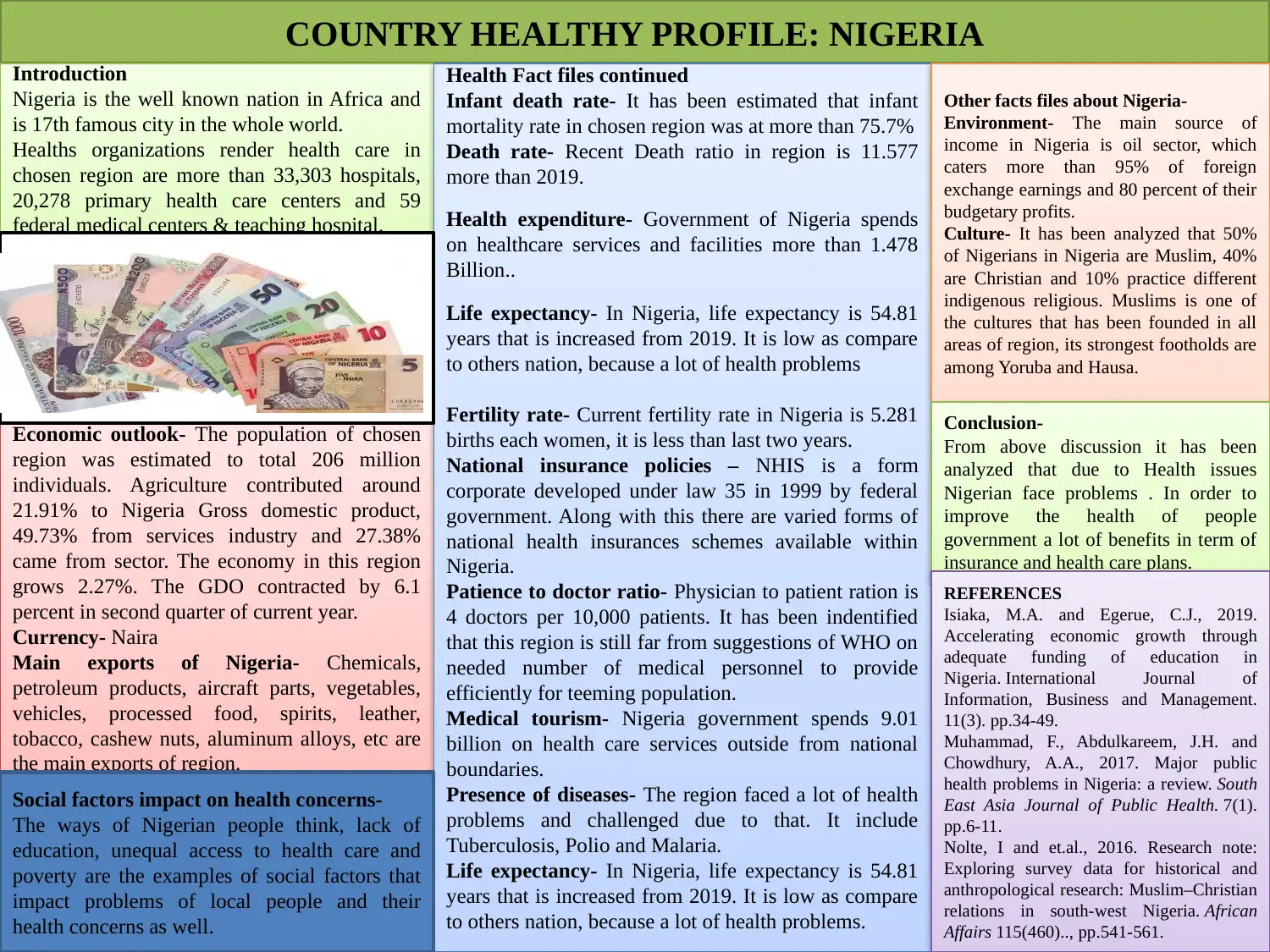Comprehensive Report: Nigeria's Health Profile and Challenges
VerifiedAdded on 2023/01/05
|1
|689
|67
Report
AI Summary
This report provides a comprehensive health profile of Nigeria, examining various aspects of the country's healthcare system and population health. It begins with an introduction highlighting Nigeria's healthcare infrastructure, including the number of hospitals, primary health care centers, and federal medical centers. The report then delves into key health indicators such as infant mortality, death rates, health expenditure, and life expectancy, comparing these figures to previous years and other nations. It also explores the economic outlook, including GDP, currency, and main exports, and analyzes the social factors impacting health concerns, such as fertility rates and national insurance policies. Furthermore, the report discusses the physician-to-patient ratio, medical tourism, the presence of diseases like Tuberculosis, Polio, and Malaria, and other relevant facts about the environment and culture of Nigeria. The conclusion summarizes the health challenges faced by Nigeria and the government's efforts to improve healthcare through insurance and health care plans. The report references several scholarly articles to support its findings, offering a well-rounded overview of Nigeria's health status.







![[object Object]](/_next/static/media/star-bottom.7253800d.svg)